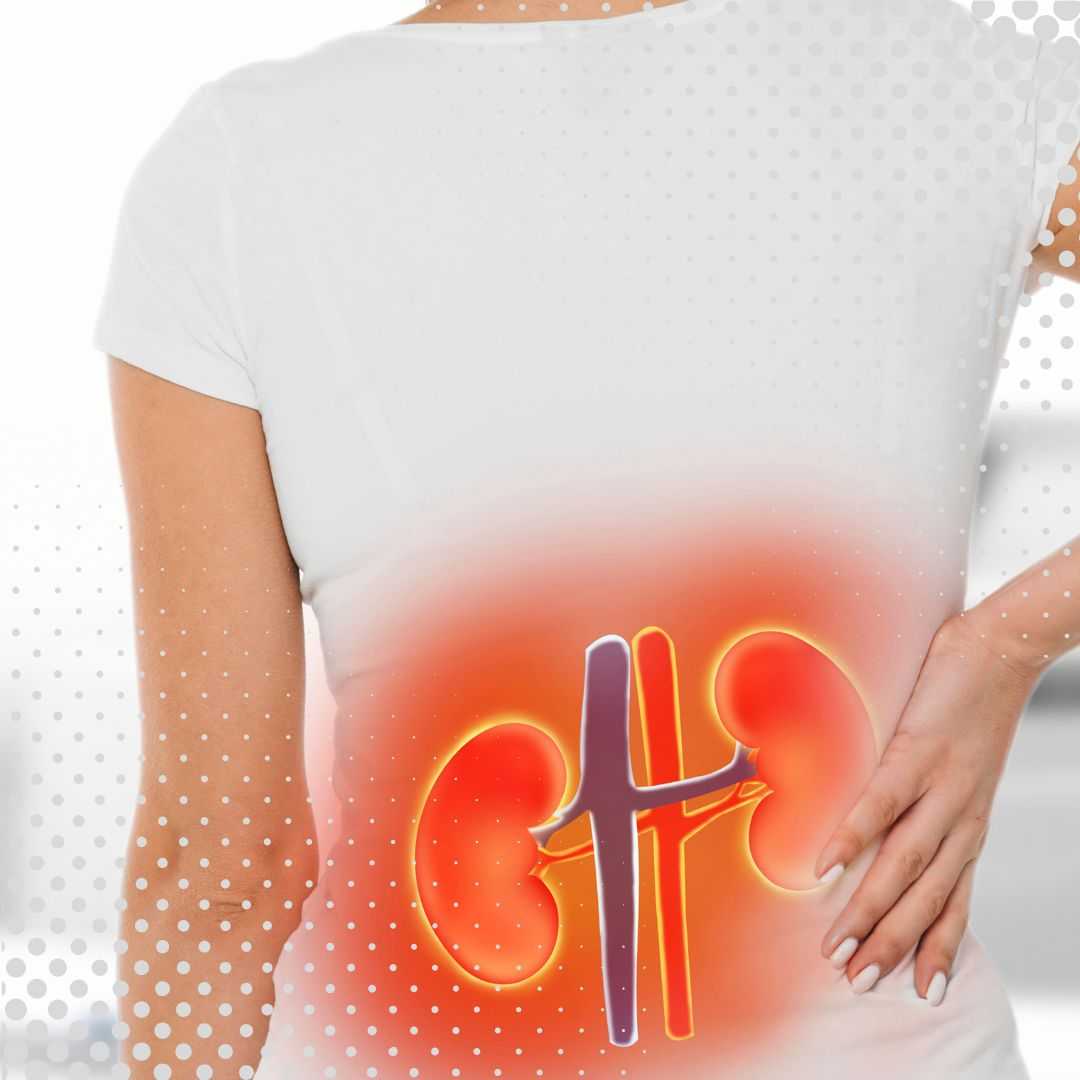
Unwind & Recharge: Your Guide to International Meditation Retreats
In our fast-paced world, finding moments of calm can feel like a luxury. Yet, the practice of meditation offers a powerful path to inner peace, stress reduction, and improved well-being. More and more people are discovering that an immersive meditation experience, especially in a serene international setting, can be profoundly transformative. This journey of seeking tranquility through travel is a unique facet of wellness tourism, allowing you to combine self-care with cultural exploration.
Whether you're new to meditation or looking to deepen your existing practice, international retreats provide a dedicated space away from daily distractions. Imagine practicing mindfulness amidst the lush landscapes of Bali, the ancient wisdom of India, or the tranquil beaches of Thailand. These experiences offer not just a break from routine, but an opportunity for profound personal growth, often at a more accessible cost than similar programs in Western countries. Medical tourism platforms like PlacidWay help connect you with reputable centers globally, ensuring a safe and enriching journey towards mental clarity and emotional balance.
What is Meditation and Its Main Types?
At its core, meditation is a set of techniques designed to train attention and awareness, ultimately leading to a state of mental clarity and emotional calm. It's not about stopping thoughts, but rather observing them without judgment. The origins of meditation span thousands of years and various cultures, leading to a rich diversity of practices. Each type offers a unique approach to cultivating inner peace and self-awareness.
Some of the most widely practiced types include:
- Mindfulness Meditation: This popular technique involves paying attention to the present moment without judgment. You observe your thoughts, feelings, and bodily sensations as they arise, allowing them to pass without getting caught up in them. It's often taught in secular settings and is highly effective for stress reduction.
- Vipassana Meditation: Originating from Buddhist traditions, Vipassana means "seeing things as they really are." It's an intense self-observational practice that focuses on connecting with the sensations of the body, aiming to understand the impermanence of existence and ultimately achieve liberation.
- Transcendental Meditation (TM): This is a specific form of mantra meditation where practitioners silently repeat a given mantra to settle the mind into quieter states of awareness. TM is often taught through a structured course and is known for its effectiveness in reducing stress and improving focus.
- Loving-Kindness (Metta) Meditation: This practice cultivates feelings of compassion, kindness, and goodwill towards oneself and others. Practitioners often repeat phrases wishing well-being, happiness, and freedom from suffering, starting with themselves and gradually extending to loved ones, neutral persons, and even difficult individuals.
- Yoga Meditation: Many forms of yoga incorporate meditation as a core component, especially practices like Raja Yoga and Jnana Yoga. The physical postures (asanas) often prepare the body for extended periods of seated meditation.
Understanding these different styles can help you choose a meditation retreat that aligns with your personal goals and preferences, ensuring a more fulfilling and impactful experience.
What Are the Health Benefits of Regular Meditation?
The practice of meditation is not merely a spiritual pursuit; it has a wealth of scientifically proven benefits for both mental and physical health. Engaging in regular meditation can significantly transform your overall well-being, helping you navigate life's challenges with greater ease and resilience.
Key health benefits include:
- Stress Reduction: Meditation is renowned for its ability to lower stress levels. It helps calm the "fight or flight" response, reducing the production of stress hormones like cortisol and promoting a sense of relaxation and inner peace.
- Anxiety Management: Regular practice can significantly decrease symptoms of anxiety and panic attacks by helping individuals observe anxious thoughts without getting overwhelmed by them.
- Improved Emotional Regulation: Meditation teaches you to acknowledge and understand your emotions rather than reacting impulsively, leading to greater emotional stability and resilience.
- Enhanced Focus and Attention: By training the mind to stay present, meditation can improve concentration, memory, and cognitive flexibility, boosting productivity and mental clarity.
- Better Sleep Quality: Many practitioners report improved sleep patterns and relief from insomnia, as meditation helps quiet the mind and prepare the body for restful sleep.
- Reduced Blood Pressure: Studies suggest that regular meditation can contribute to lower blood pressure, promoting cardiovascular health.
- Increased Self-Awareness: Meditation fosters a deeper understanding of one's thoughts, feelings, and patterns, leading to greater self-knowledge and personal growth.
These benefits highlight why so many are choosing to incorporate meditation into their lives, often seeking immersive experiences through retreats to kickstart or deepen their practice.
Who is Eligible for Meditation Retreats Abroad?
One of the beautiful aspects of meditation is its universal accessibility. Unlike many medical procedures, meditation retreats abroad are open to a wide range of individuals. You don't need any prior experience, specific physical abilities, or a particular spiritual belief system to participate. The primary eligibility criteria are simply a willingness to learn, an open mind, and a desire for self-improvement.
Whether you are a complete beginner looking to explore the basics of mindfulness, or an experienced meditator seeking to deepen your practice, there is a retreat designed for you. Many retreats cater specifically to beginners, providing gentle introductions to various techniques and offering supportive guidance. Advanced retreats might involve longer periods of silence or more intense practices. Individuals of all ages, from young adults to seniors, can benefit, provided they are in generally good health and able to sit comfortably for periods of time.
However, it's always wise to review the specific requirements of any retreat you consider, especially if you have significant physical limitations or mental health conditions. While meditation is beneficial for many mental health challenges, some intense retreats might not be suitable for individuals experiencing acute psychological distress. If in doubt, consulting with a healthcare professional and communicating your needs to the retreat center is always recommended. Ultimately, the journey of meditation is personal, and most retreats are designed to be inclusive and supportive.
Is Meditation Effective for Stress and Anxiety?
Absolutely. The effectiveness of meditation in combating stress and anxiety is one of its most widely recognized and scientifically supported benefits. In our modern world, chronic stress and anxiety are pervasive, leading to a myriad of health issues. Meditation offers a non-pharmacological, sustainable approach to managing these challenges.
When you meditate, you engage in a process that calms your nervous system. Practices like mindfulness help you observe stressful thoughts and feelings without being consumed by them. This creates a mental distance, allowing you to respond to stressors more thoughtfully rather than reactively. Over time, regular meditation can actually alter brain structures related to stress and emotion, strengthening areas associated with attention, compassion, and emotional regulation, while potentially reducing activity in areas linked to fear and anxiety.
Many people who attend meditation retreats specifically seek relief from chronic stress, burnout, or generalized anxiety. The immersive environment, often combined with expert guidance, provides an ideal setting to develop effective coping strategies. Learning to anchor yourself in the present moment through breath and body awareness can be a powerful antidote to anxious thought patterns that often dwell on past regrets or future worries. This makes meditation an invaluable tool for cultivating resilience and inner calm.
Why Travel Abroad for a Meditation Retreat?
While you can meditate anywhere, traveling abroad for a dedicated retreat elevates the experience significantly. It’s an opportunity to fully disconnect from the demands of your daily routine and immerse yourself in an environment conducive to deep introspection and spiritual growth. The benefits extend beyond simply learning to meditate; they encompass a holistic wellness journey.
Key reasons to consider an international meditation retreat include:
- Complete Immersion: Removing yourself from your everyday environment makes it easier to focus solely on your practice without distractions from work, family, or social obligations.
- Cultural Enrichment: Many popular meditation destinations like India, Thailand, or Bali offer deep spiritual traditions. You can learn authentic practices directly from experienced local teachers and absorb the unique cultural energy.
- Serene Environments: International retreats are often located in breathtaking natural settings – mountains, beaches, forests – which inherently contribute to a sense of peace and relaxation, enhancing your meditation experience.
- Affordability: In many countries, the cost of an all-inclusive meditation retreat, including accommodation, meals, and instruction, can be significantly more affordable than comparable programs in Western countries, making a longer or more intensive stay possible.
- Expert Guidance: Traveling abroad often grants access to highly experienced and revered meditation masters and teachers who might not be easily accessible in your home country.
- Personal Growth & Adventure: Combining a wellness journey with travel offers a unique blend of self-discovery and adventure, creating lasting memories and a renewed perspective.
This comprehensive approach to wellness and travel is what makes international meditation retreats an increasingly popular choice for those seeking profound personal transformation.
What to Look for in a Meditation Retreat Abroad?
Choosing the right meditation retreat abroad requires careful consideration to ensure it meets your expectations and supports your goals. With a vast array of options available, taking the time to research thoroughly will lead to a more fulfilling experience.
Here are crucial factors to consider:
- Meditation Style: Different retreats focus on specific meditation traditions (e.g., Vipassana, Mindfulness, Zen, Yoga-based). Research these styles to find one that resonates with you.
- Teacher Qualifications: Look for retreats led by experienced, reputable teachers with genuine lineage or extensive training. Read reviews and testimonials about their teaching style.
- Retreat Duration and Intensity: Retreats can range from weekend getaways to multi-week silent immersions. Beginners might prefer shorter, less intense programs, while experienced meditators may seek longer, more challenging ones.
- Location and Environment: Consider if you prefer a mountain sanctuary, a beachside haven, or an urban oasis. The environment plays a significant role in fostering a sense of peace.
- Accommodation and Facilities: Check for comfortable lodging, healthy meals (often vegetarian or vegan), and amenities like yoga studios, gardens, or natural walking paths.
- Cost and Inclusions: Understand what's covered in the price (accommodation, food, tuition, airport transfers, additional activities). Compare costs across different locations and retreat types.
- Language: Ensure the primary language of instruction is one you understand well.
- Reviews and Reputation: Look for independent reviews and testimonials from past attendees to gauge the quality of the retreat and the overall experience.
By considering these aspects, you can confidently select a retreat that will provide the ideal environment for your meditation journey.
How Medical Tourism Facilitators Help with Meditation Retreats?
While meditation retreats are often perceived as a personal journey, navigating international travel and finding the right retreat can be complex. This is where medical and wellness tourism facilitators, such as PlacidWay, become invaluable. They streamline the entire process, making your pursuit of inner peace abroad as seamless and stress-free as possible.
Here's how they assist:
- Vetted Retreat Options: PlacidWay partners with established and reputable meditation centers and wellness resorts worldwide. This means you gain access to a curated list of high-quality options, saving you countless hours of research and ensuring credibility.
- Cost Comparisons & Transparency: They can provide detailed cost breakdowns and comparisons across various destinations, helping you find a retreat that fits your budget without compromising on quality.
- Logistical Support: From visa requirements and accommodation bookings to airport transfers and local transportation, facilitators handle the intricate details of international travel, allowing you to focus on your wellness goals.
- Personalized Guidance: Based on your experience level, preferred meditation style, budget, and desired location, they can offer personalized recommendations, ensuring you find the perfect retreat for your needs.
- Communication & Language Barriers: Facilitators can act as a bridge, assisting with communication between you and the retreat center, especially if there are language differences.
- Comprehensive Packages: Often, they can help arrange all-inclusive packages that cover the retreat, travel, and even complementary wellness activities, offering a holistic experience.
By leveraging the expertise of a facilitator, you can embark on your international meditation retreat with confidence, knowing that all the practicalities are expertly managed.
Cost Comparison of Meditation Retreats Worldwide
The cost of a meditation retreat is a significant factor for many individuals considering a wellness journey abroad. Prices can fluctuate wildly depending on the destination, the duration of the retreat, the level of luxury or simplicity, the included amenities, and the reputation of the instructors or center. Generally, you'll find more budget-friendly options in Asia compared to Europe or North America, making them popular choices for wellness tourism.
It's important to remember that these costs typically include accommodation, meals (often vegetarian/vegan), and all meditation instruction and workshops. Some premium retreats might also include spa treatments, yoga classes, or excursions. Always clarify what is included in the package price when making comparisons.
| Destination | Typical Duration | Estimated Cost (USD) per person | Notes |
|---|---|---|---|
| India (Rishikesh, Goa) | 7-14 days | $300 - $1,500 | Often very authentic, basic to mid-range facilities. Yoga often included. |
| Thailand (Chiang Mai, Islands) | 5-10 days | $400 - $1,800 | Known for Vipassana and Buddhist retreats. Beautiful natural settings. |
| Bali, Indonesia | 5-7 days | $700 - $2,500 | Mix of luxury and mid-range options, often combined with yoga and healing arts. |
| Portugal / Spain | 4-7 days | $800 - $2,000 | Popular European destinations, often with a focus on mindfulness and wellness. |
| Costa Rica | 7 days | $1,000 - $3,000+ | Eco-friendly retreats in natural settings, often combining meditation with adventure. |
| United States (e.g., California, Northeast) | 3-7 days | $700 - $3,500+ | Higher cost generally, but diverse range of styles and luxury levels. |
These figures are averages and can vary widely. It's always best to get specific quotes and detailed itineraries from individual retreat centers or through a facilitator like PlacidWay to understand the full cost and value.
Combining Meditation with Other Wellness Therapies Abroad
One of the great advantages of medical and wellness tourism is the opportunity to create a truly holistic self-care journey. Many international destinations and wellness centers specialize in combining meditation with a variety of other beneficial therapies, creating a synergistic effect that enhances overall well-being.
Imagine starting your day with a guided meditation session, followed by a rejuvenating yoga class overlooking the ocean, and then indulging in an Ayurvedic massage or a personalized nutrition consultation. This integrated approach can accelerate your healing, stress reduction, and personal growth. Popular combinations include:
- Meditation & Yoga: A classic pairing, as yoga postures prepare the body for stillness, and meditation calms the mind, deepening both practices.
- Meditation & Detox Programs: Cleansing the body through nutrition and fasting while simultaneously purifying the mind through meditation can lead to profound physical and mental renewal.
- Meditation & Spa Treatments: Combining mindfulness with relaxing spa therapies like massages, hydrotherapy, or aromatherapy can amplify relaxation and stress relief.
- Meditation & Traditional Healing: In countries like India or Thailand, you might combine meditation with ancient practices such as Ayurveda, Traditional Chinese Medicine, or local shamanic rituals for a culturally rich and deeply restorative experience.
- Meditation & Nature Therapy: Many retreats integrate mindfulness with forest bathing, hiking, or other outdoor activities, connecting you more deeply with the natural world.
This allows you to address multiple aspects of your health simultaneously, returning home not just refreshed, but genuinely transformed, with a deeper understanding of your body and mind.
How to Prepare for a Meditation Retreat?
A successful meditation retreat experience often begins long before you arrive at your destination. Proper preparation can significantly enhance your ability to immerse yourself fully and gain the most benefit from your time there. It's about setting the stage for deep introspection and minimal distraction.
Key steps in preparing for your retreat include:
- Research and Understand the Retreat: Familiarize yourself with the specific meditation style, the daily schedule, and any rules or guidelines (e.g., periods of silence, dress code, dietary restrictions).
- Pack Appropriately: Bring comfortable, loose-fitting clothing suitable for sitting for extended periods and for any physical activities like yoga. Layers are often recommended. Include basic toiletries, any necessary medications, and perhaps a journal.
- Manage Expectations: Understand that a retreat isn't always blissful. You might encounter emotional challenges or physical discomfort. Embrace these as part of the process.
- Digital Detox: Many retreats encourage or require a "digital detox." Try to reduce your screen time in the days leading up to the retreat to ease into this transition. Inform loved ones that you may be unreachable.
- Settle Affairs: Tie up loose ends at work and home so you can fully disconnect without nagging worries.
- Set Intentions: Reflect on what you hope to gain from the retreat. Whether it's stress reduction, clarity, or self-discovery, having a clear intention can guide your practice.
- Travel Logistics: Ensure your flights, visas, and transfers are all confirmed and organized well in advance, especially if you're traveling internationally. This is where a facilitator like PlacidWay can be a huge asset.
By taking these preparatory steps, you create a conducive environment for a truly transformative and deeply enriching meditation experience.
What Are Common Myths About Meditation?
Meditation is a powerful practice, but it's often surrounded by misconceptions that can deter people from trying it or lead to frustration. Dispelling these myths is crucial for approaching meditation with a realistic and open mind, especially when embarking on an immersive retreat experience.
Here are some common myths and their realities:
- Myth 1: You need to clear your mind completely of all thoughts.
Reality: This is perhaps the biggest misconception. The goal of meditation isn't to stop thinking, but to observe thoughts without judgment and to reduce their power over you. Thoughts will always arise; the practice is in how you relate to them. - Myth 2: Meditation is only for spiritual or religious people.
Reality: While meditation has spiritual roots, many modern practices are entirely secular, focusing on mental well-being, stress reduction, and cognitive enhancement. Anyone can meditate, regardless of their beliefs. - Myth 3: You need to be flexible and sit in a specific lotus position.
Reality: While some traditions use specific postures, you can meditate comfortably in any position – sitting on a chair, lying down, or even walking. The key is to be comfortable and alert. - Myth 4: Meditation is always peaceful and relaxing.
Reality: While peace is often a result, the process itself can sometimes be challenging. You might confront uncomfortable emotions, restlessness, or boredom. These are all part of the journey to deeper self-awareness. - Myth 5: You need hours a day to meditate effectively.
Reality: Even just 5-10 minutes of consistent daily practice can yield significant benefits. The consistency is more important than the duration, especially for beginners.
Understanding these truths can help you approach your meditation journey, particularly during a retreat, with patience and a clearer perspective.
Choosing the Right Meditation Technique for You
With so many meditation techniques available, deciding which one is right for you can feel overwhelming. However, the beauty of meditation lies in its diversity; there's likely a practice that perfectly aligns with your personality, goals, and lifestyle. The key is to approach this choice with curiosity and a willingness to experiment.
Consider the following factors when making your decision:
- Your Goals: Are you seeking stress reduction, improved focus, emotional healing, spiritual growth, or something else? Different techniques emphasize different outcomes. Mindfulness, for instance, is excellent for stress and awareness, while Loving-Kindness focuses on compassion.
- Your Personality: Are you someone who thrives with structure, or do you prefer a more fluid approach? Some techniques, like Transcendental Meditation, are highly structured, while others, like open-awareness mindfulness, are more fluid.
- Comfort Level with Silence: Some retreats or practices involve extended periods of silence, which can be challenging for beginners. Others incorporate more guided instruction or mantra chanting.
- Interest in Specific Traditions: If you're drawn to a particular spiritual or philosophical tradition (e.g., Buddhism, Hinduism), exploring meditation within that lineage might be fulfilling.
- Accessibility and Resources: Consider what resources are available to you locally or what type of retreat you can realistically attend abroad. Online courses, apps, local classes, and international retreats all offer different entry points.
The best way to find your ideal technique is often through direct experience. Try introductory classes, use meditation apps, or, ideally, attend a short retreat that offers a variety of styles. A retreat provides a supportive environment to explore different methods and receive guidance from experienced teachers, helping you discover the practice that truly resonates with your inner self.
Maximizing Your Meditation Retreat Experience
Attending an international meditation retreat is a significant investment in your well-being. To ensure you gain the most transformative benefits from this unique experience, it’s essential to approach it with intention and openness. Maximizing your retreat means fully immersing yourself in the present moment and embracing the journey of self-discovery.
Here’s how you can make the most of your time:
- Embrace the Digital Detox: Fully disconnect from your phone, email, and social media. This is crucial for truly quieting the mind and focusing inwards.
- Commit to the Schedule: Retreats have a structured daily schedule of meditation, meals, and sometimes discussions. Adhere to it diligently, even when you feel restless or tired. Consistency builds discipline and deeper practice.
- Engage with the Teachings: Attend all instruction sessions and dharma talks. Ask questions if encouraged, and reflect on the wisdom shared by the teachers.
- Allow for Processing: It’s common for emotions, memories, and physical sensations to arise during meditation. Don't suppress them; allow them to be present and observe them with curiosity and compassion.
- Practice Self-Compassion: There will be moments of challenge. Be kind to yourself, acknowledge your efforts, and avoid self-judgment.
- Journal Your Experiences: A journal can be a valuable tool for tracking insights, challenges, and progress throughout your retreat.
- Plan for Reintegration: Think about how you’ll integrate what you've learned into your daily life once you return home. Develop a sustainable personal practice to maintain the benefits.
By engaging deeply with these aspects, your meditation retreat can become a truly life-changing experience, offering lasting tools for peace and well-being.
Begin Your Journey to Inner Peace with PlacidWay
Ready to find your sanctuary and cultivate lasting peace? Your path to a transformative meditation retreat is within reach. Explore top-rated international wellness centers, compare programs, and get a free, personalized consultation for your meditation or wellness journey with PlacidWay. Let us help you plan a seamless and deeply enriching medical travel experience. Discover your inner calm today!
Ayurvedic Treatment Abroad, Alternative and Complementary Medicine










Share this listing